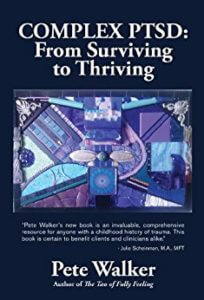“”
At Mindful Synergi, we use a trauma-informed lens when working with couples, and this means being sensitive to the profound impact of past experiences on individuals and their relationships. Whether it’s childhood trauma, relational wounds, or other forms of adversity, unresolved trauma can cast a shadow over a partnership, hindering intimacy and trust. Incorporating a trauma-informed approach into couples therapy means recognising the impact of trauma on both partners and creating a safe and supportive environment for healing.
One concept we use to deepen each partner’s understanding of one another’s childhood experiences and their impacts, is the internal working model. This principle stems from attachment theory, and refers to the mental representations individuals hold about themselves, their partners, and relationships in general. Early attachment experiences—typically formed during interactions with primary caregivers as a child—have shaped these models. The internal working model influences how individuals perceive and navigate their romantic relationships, including their beliefs, behaviors, and emotional responses.
During couples therapy, we can explore the internal working models of each partner to gain insight into their relational dynamics. By understanding each partner’s attachment style and how it influences their interactions, we can help couples identify and address patterns of communication, conflict management, and emotional expression.
For instance, individuals with a secure attachment style tend to approach relationships with trust, confidence, and a healthy sense of self-worth. This leads to more open communication, emotional intimacy, and mutual support within the relationship. On the other hand, those with anxious or avoidant attachment styles may struggle with intimacy, fear of abandonment, or difficulty expressing their needs. This can lead to patterns of emotional distance, conflict avoidance, or excessive dependence on their partner.
Understanding attachment patterns allows therapists and couples to work together to develop strategies for building trust and security within the relationship, while providing insight into relational dynamics and attachment needs. By understanding each other’s needs, couples can work towards greater intimacy, trust, and connection.
Is it possible to heal my internal working model?
Yes! Healing your internal working model is a journey that involves self-awareness and intentional steps toward growth. Here are some ways to begin:
- Therapy: Seek support from a qualified therapist who understands attachment theory. Therapy provides a safe space to explore your attachment patterns and develop healthier relationship dynamics.
- Mindfulness: Practice mindfulness techniques to become more aware of your thoughts, emotions, and relational patterns.
- Communication skills: Improve your communication skills, fostering open and honest communication with yourself and others.
- Boundary-setting: Establish healthy boundaries in your relationships to protect your emotional well-being.
- Healing past wounds: Engage in healing modalities such as inner child work or trauma-focused therapies.
- Relationship building: Foster supportive relationships with friends, family, or support groups.
- Self-compassion: Practice self-compassion and self-care as you navigate the process of healing and growth.
Remember that healing is a gradual process, and seeking support, either through individual, and/or couples therapy along the way can be extremely beneficial. With time and effort, you can cultivate a healthier inner world and build more fulfilling relationships.
In the realm of love, understanding each other’s internal working models is the most potent magic. It transforms wounds into wisdom and barriers into bridges”
Like a good read? Our top pick for relationships and trauma
Surviving to Thriving – by Pete Walker
We think everyone needs this down-to-earth, self-help guide on their night stand. If you’ve ever felt lonely, disconnected, unwanted or disliked this is your map to unwavering self-compassion, kindness and healing.

